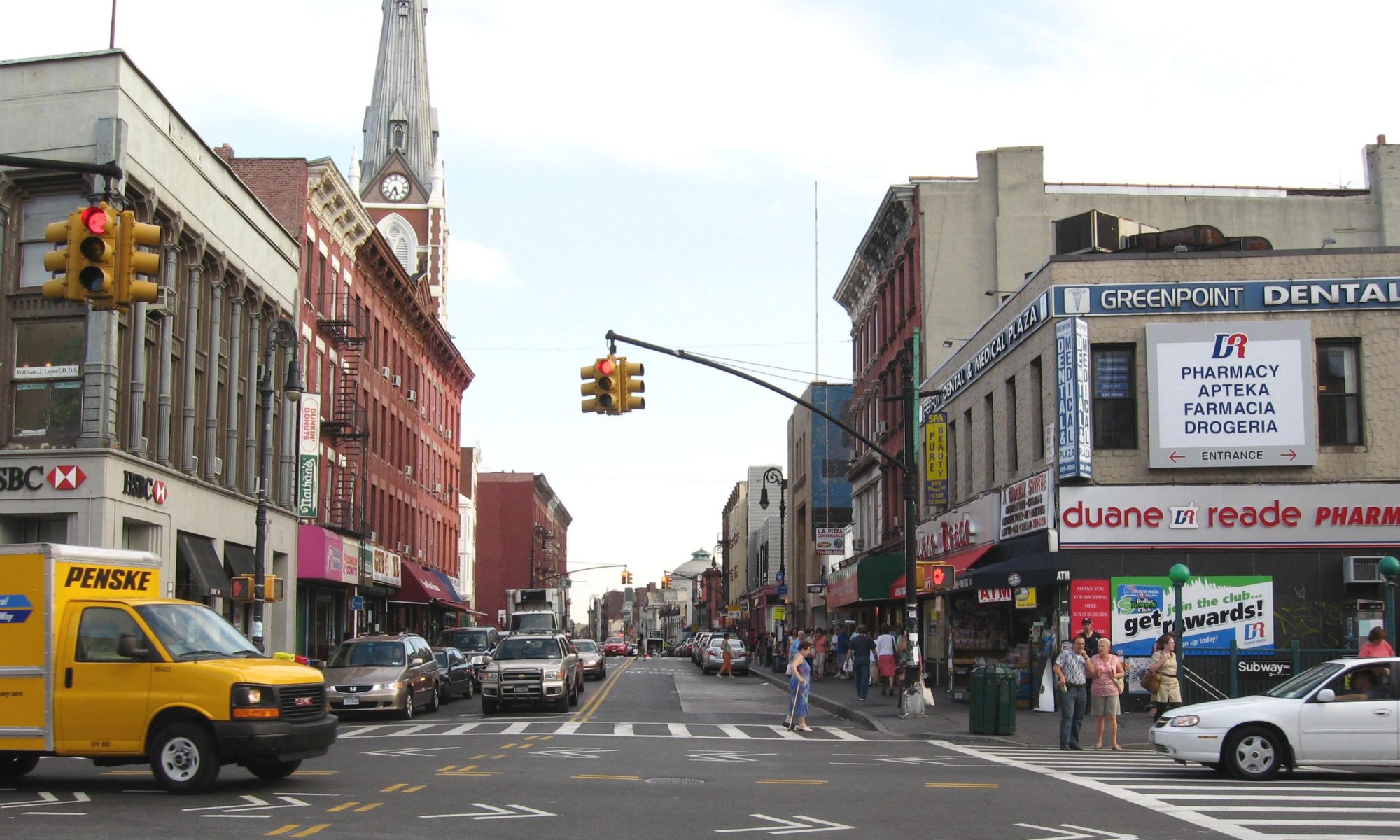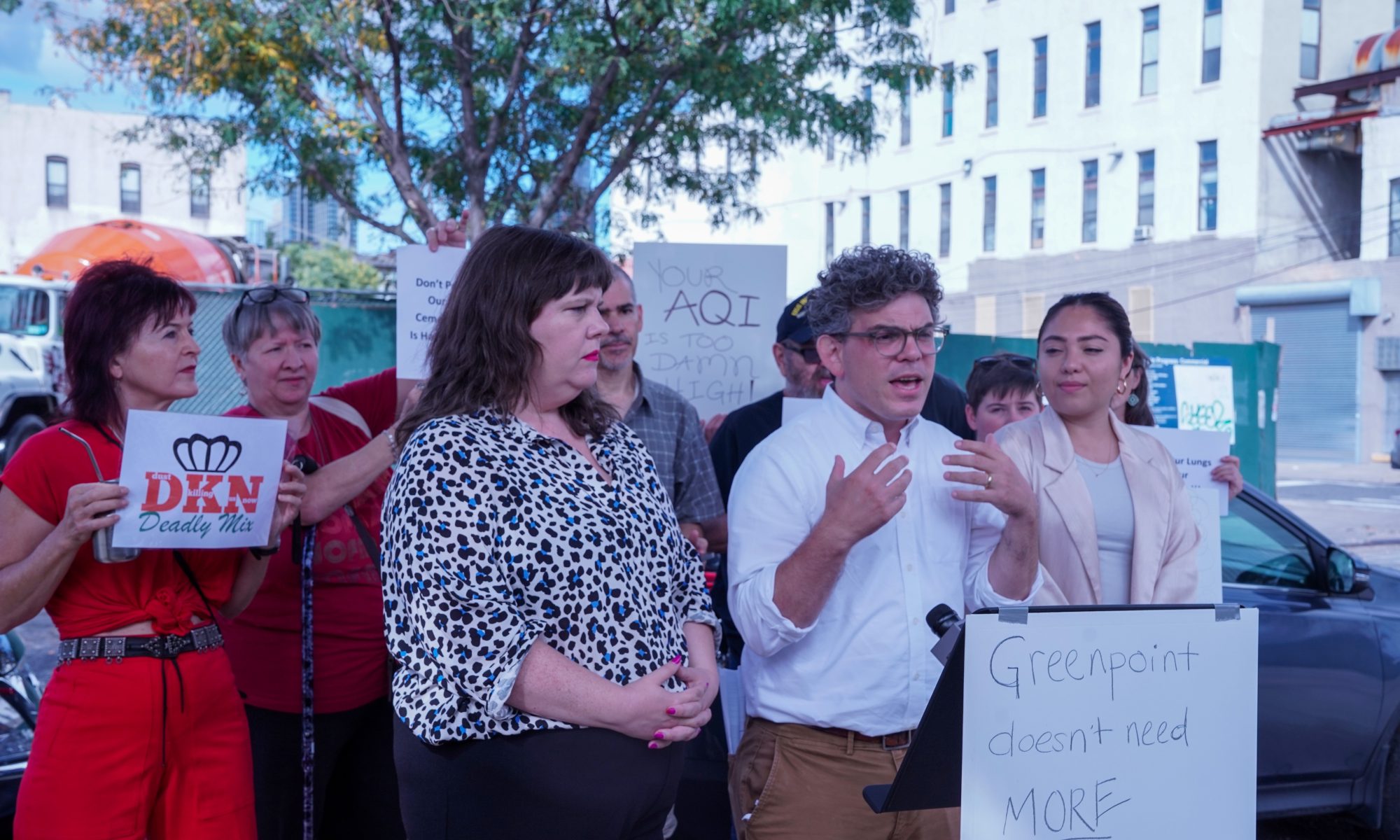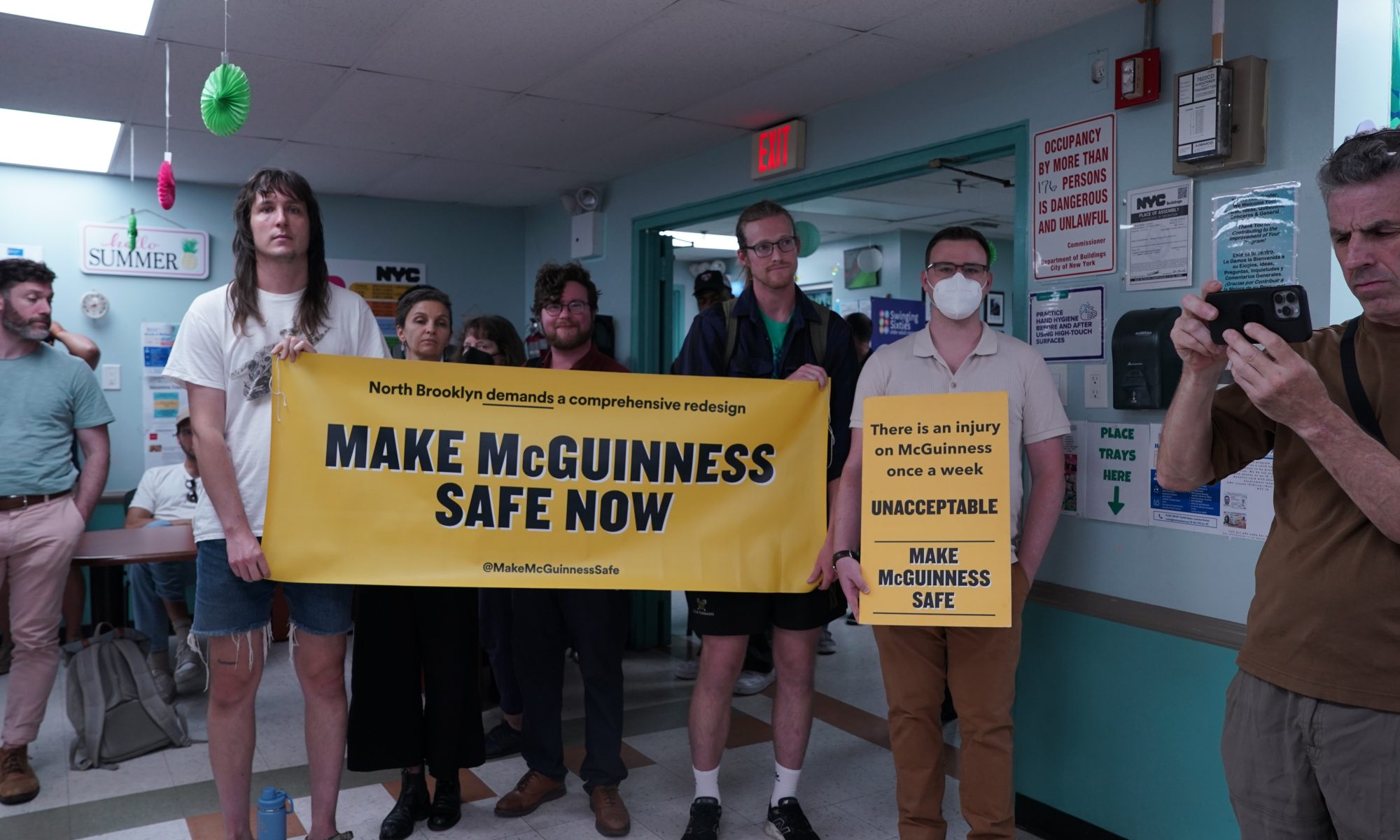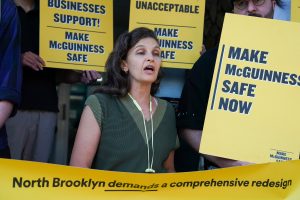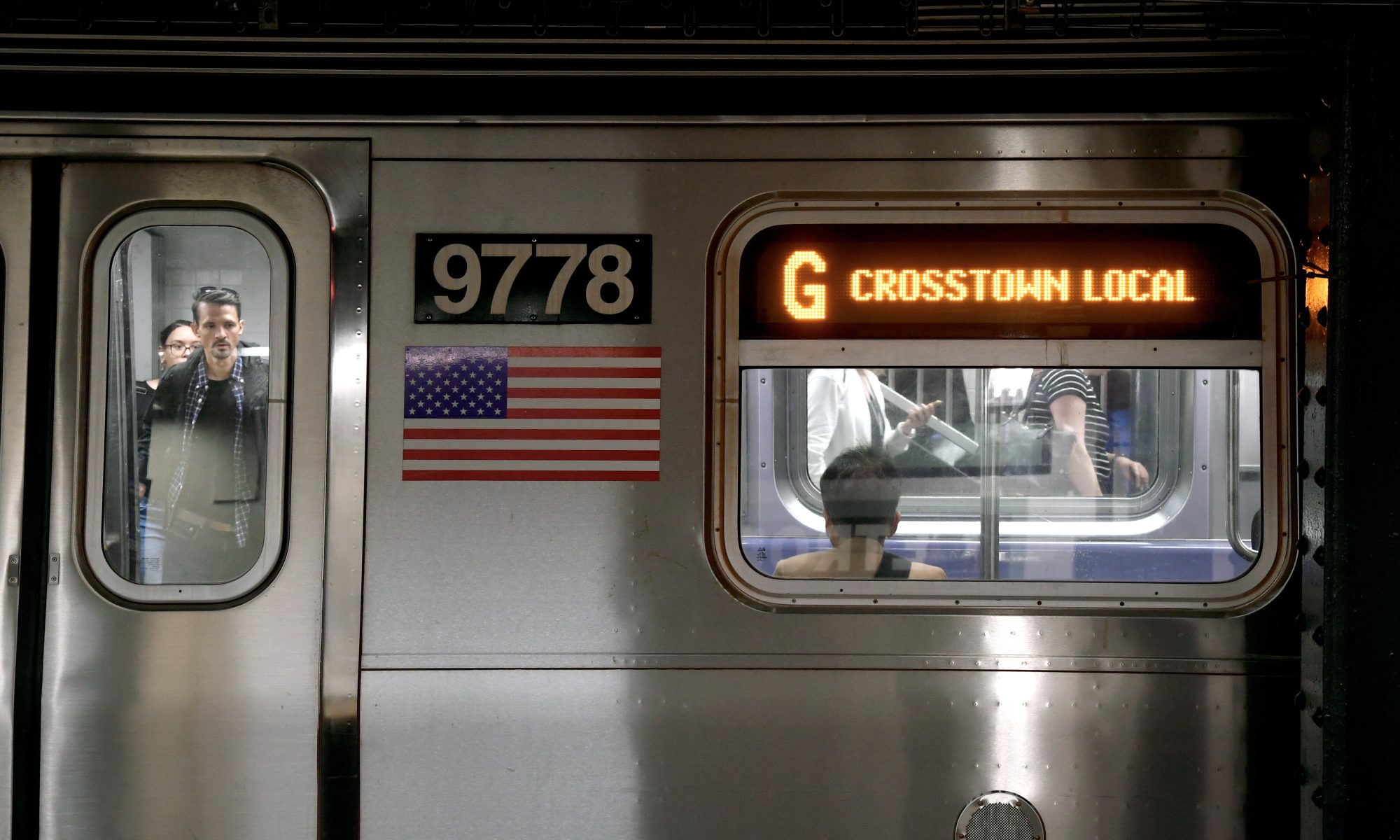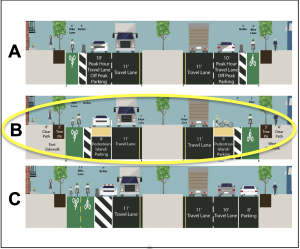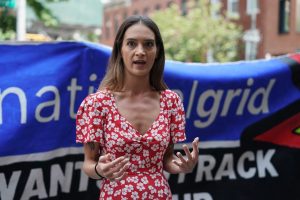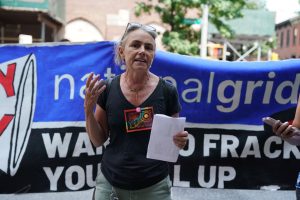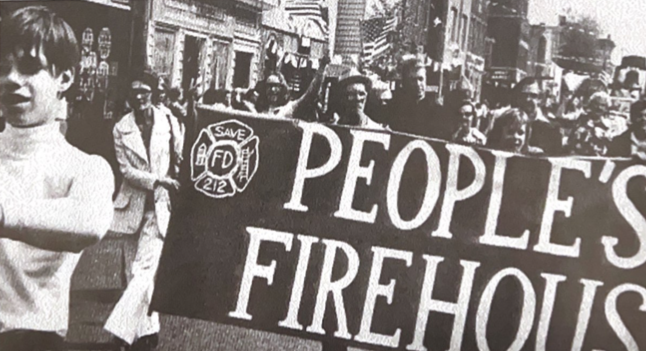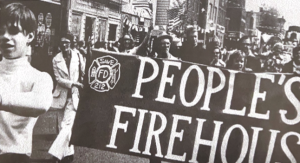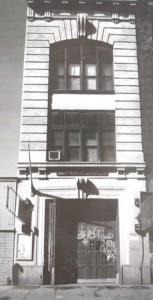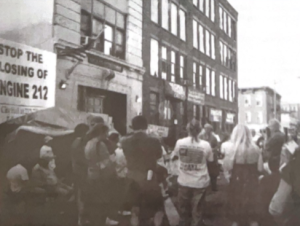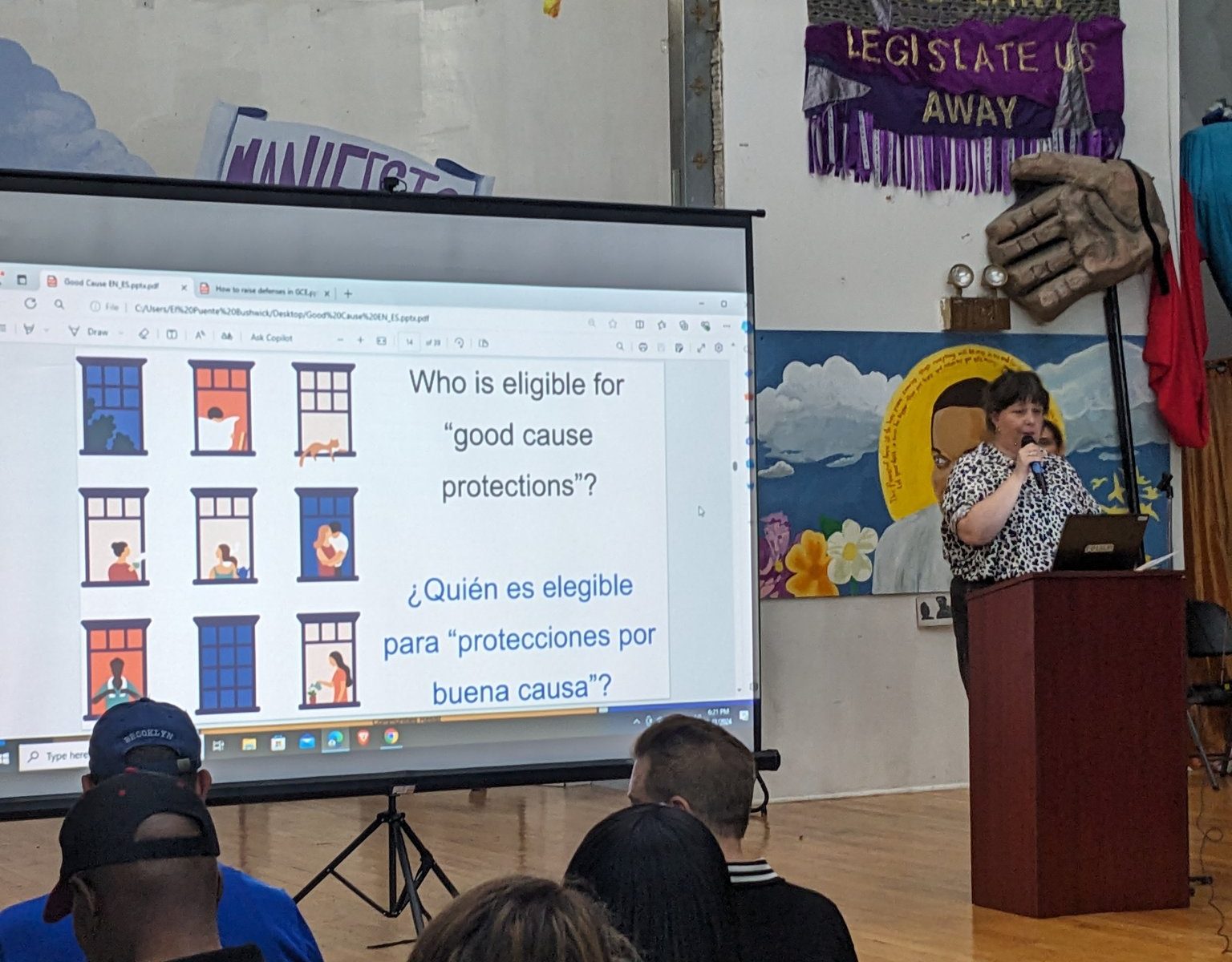By Jean Brannum | jbrannum@queensledger.com
Outside the DKN ReadyMix facility, Councilmember Lincoln Restler, State Senator Kristen Gonzalez, Assembly Member Emily Gallagher, and other community members spoke out against the cement mixing company for polluting the area and causing intense noise.
The facility, which has several Department of Buildings complaints for spraying dust into the air, and banging concrete blocks against the ground causing noise and shaking, has received repeated requests from elected officials and residents to be better neighbors, the officials say. However, the facility has allegedly failed to meet with the community and has not fixed the issues.
The situation has escalated to the point where Restler called for the company to shut down the Greenpoint location.
“They’ve provided no substantive information, no real answers, most of all, no improvement,” Restler said. “We are gathered as elected officials, the united front, as community leaders, community-based organizations, all together demanding that this noxious business get the hell out of Greenpoint.”
Jens Rasmussen, who lives next to DKN, told Greenpoint Star in a previous interview that he saw workers slamming cement blocks onto the ground, which caused shaking and cracks in his building. The dust in the air has also caused respiratory issues for his two-year-old son.
Another resident, Laura Hofmann, said she could write her name in the layer of dust that coats her car. She lives a few blocks from the facility.
The DOB fined DKN $620 for performing work with a certificate of occupancy for the sale of used cars and car parts. The dispute was resolved, according to the DOB, and the certificate was corrected.
However, elected officials and residents say they have not seen improvement in the air quality or noise levels. Elected officials sent a letter to DKN demanding a meeting. The meeting was supposed to take place Aug 14 but was canceled the day before, according to Restler. He said that DKN hired a lobbying firm” to assist them. There has not been a meeting, or discussion of one, since then.
The air quality index (AQI) readings have been startling at the exact location of DKN. Lael Goodman, director of environmental programs at North Brooklyn Neighbors, saw a spike with an AQI reading over 500, which she said was worse than readings during the wildfires in Canada that turned city skies orange in 2023.
Air quality monitors measure for particulate matter less than 2.5 micrometers in diameter, which is small enough to be inhaled, Goodman explained in a previous interview. An acceptable air quality reading is an average of 35 micrograms per cubic meter (µg/m3) over 24 hours, according to NYC Environment and Health. Air quality readings on Purple Airshow the average 24-hour amount to be 59 µg/m3as of Sept 20. The one-week average is 55 µg/m3.
The issues with DKN reflect repeated environmental justice issues in the neighborhood. Gallagher spoke about how she is tired of companies causing environmental issues for nearby residents. She also encouraged DKN to start working with the community to protect residents’ health and well-being.

“They can either work with us and keep their business, or they can work against us and see what happens,” Gallagher said.
Willis Elkins from the Newtown Creek Alliance agreed that Greenpoint already has many environmental issues from an industrial history.
“It’s not that this is anti-business. This is being a bad neighbor, and DKN ReadyMix has this proven history of polluting our air, polluting our waterways, and congesting our streets, making it dangerous for everybody in the community, Elkins said.
Elkins referred to DKN’s previous establishments at Maspeth Ave and in Long Island City. Riverkeeper, a nonprofit that advocates for the protection of the Hudson River and its tributaries, sued DKN in 2016 for allowing stormwater runoff from their facility to pollute nearby waterways in Long Island City. A judge ruled in favor of Riverkeeper and DKN had to pay $10,000 to the Newtown Creek Alliance.
While Restler ultimately called for DKN to relocate, he and his elected counterparts clarified that they are not against all businesses or industrial establishments in the area. He simply wants these businesses to be good neighbors. Gonzalez said that DKN can choose to comply with regulations and be a better neighbor.
“We want a new industrial business providing good jobs to our community, who will be a good neighbor for Greenpoint, Restler said.”
DKN ReadyMix did not respond to requests for comment.
